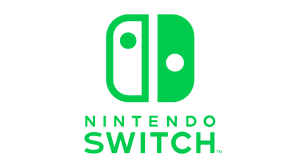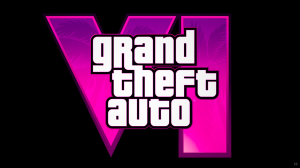Regardless of your opinions on his films, director Quentin Tarantino has cemented himself as one of the most prolific directors of his generation. Whether it be the grittier works like Reservoir Dogs or Pulp Fiction, his bloodbaths in Kill Bill or Death Proof, or the quieter accomplishments of Jackie Brown, Tarantino has brought some of cinema’s most colorful characters to life, blending real-world humanity with larger-than-life personalities that not only honor the roots of exploitation cinema, but also pushes it forward in new and unconventional ways. In hopes of conveying his achievements to audiences, director Tara Wood dove deep into the development and reaction to his first eight films with the documentary QT8: The First Eight.
Videos by ComicBook.com
A deep dive into the mind Quentin Tarantino, the world’s most celebrated filmmaker. Exclusive interviews with cast and behind-the-scenes from Tarantino’s first eight films. Closing the chapter in Hollywood history – Tarantino’s relationship with Harvey Weinstein that became his greatest disappointment. Featuring Samuel L. Jackson, Christoph Waltz, Tim Roth, Lucy Liu, Zoë Bell, Jennifer Jason Leigh, Jamie Foxx, Eli Roth, Robert Forster, Diane Kruger, Michael Madsen, Kurt Russell, Louis Black, Richard Gladstein, Scott Speigel, Stacey Sher and more.
ComicBook.com recently caught up with Wood to discuss her connection to the filmmaker, her biggest surprises while making the film, and if she thinks he will really call it quits with his 10th film.

ComicBook.com: What was your first connection with Tarantino films that sparked this passion for his career?
Tara Wood: I met Quentin on Pulp Fiction and I fell in love with Mia Wallace. And at the same time was True Romance, I don’t remember which came first. Those two films brought me into Quentin’s world. Reservoir Dogs soon followed, of course.
And what was it about those films and Mia Wallace that hooked you?
I think the overdose scene and seeing a woman put in that type of view. You’d never seen that before. The combination of the violence and the drugs and a woman being in the center of that, we hadn’t seen that before. That was pretty shocking. Groundbreaking.
Loving his films is one thing, but what inspired you to devote an entire documentary to his career up to this point?
A lot of it was what the public and what the press was putting out there with regard to attacking Quentin along the way. I was spending a lot of time in Austin, Texas. I actually went to the premiere of Jackie Brown down there and he’d put on these festivals in Austin, the QT8 Fest, and he was just such a film lover and he’s such a warm guy. It was so contradictory to what he got attacked for in the press and what they accused him of being.
As time went on and I started doing these documentaries, it was just something that always stuck in my mind of, “How do I really show who Quentin is in this landscape?” Because a lot of women would dismiss his films, which was frustrating to me. I’m like, “No, you’re not giving it enough time. You’re not giving it enough credit. You’ve got to learn more about him.” There wasn’t anything really out there to get to know that side of him. I decided to tackle it, which is kind of crazy.
Part of what makes the film engaging is that, rather than being a biography, it’s strictly about his films. Then, by learning about his films and hearing from people who worked on them, you can’t help but learn more about him. And it was just at Cannes this year when a journalist questioned him about Margot Robbie having such a small role in Once Upon a Time in Hollywood and he had to try to respectfully deny that discourse without being rude.
I think he’s at a point in his career … well, he always had this about him though, in the sense that, “If you don’t get it, I’m not going to explain it to you.” He never took on the job of explaining why he does certain things. He’s like, “You either get it or you don’t. You enjoy it or you don’t.” But he doesn’t engage in trying to explain himself and I always appreciated that about him. I remember that and I was actually in Cannes when that woman asked that question. I think his response was, “I reject your question.” And that was it. He was done.
While your film enlists many of his frequent collaborators, there are omissions like Uma Thurman and John Travolta. Was that an intentional decision, to incorporate more supporting actors who collaborated with him more regularly as to not devote too much of the film to specific performers, or did some of those opportunities just never prevent themselves? Or even Tarantino himself?
So, Travolta was busy. We had tried to schedule him several times. I don’t want to go into the Harvey Weinstein stuff, but we sold it to him and had to get the film back out, so we lost Travolta during that time. And then when we got the rights back, we weren’t able to bring him back around. But Uma declined, and we went back and forth several times, and she ultimately just didn’t feel comfortable, I guess, going forward with it.
From the beginning, there was no intention for me to interview Quentin. That was actually what he really loved about this, that we don’t interview him, and that we concentrate on the filmography. That’s why he gave us his blessing to move forward. He also said that he didn’t want to meet me until we were done. He took it to another level by being like, “Not only are you not going to sit down and talk to me on camera, but we’re not going to sit down at all,” so that there was no bias in the film at all, which I’ll actually carry with me through the next documentaries that I do. That was actually pretty fascinating.
And, of course, he’s brilliant. Of course, he knows that that’s the best way to go. That encapsulates why we did what we did. I find it very fascinating to learn about somebody through everybody else. You touched on this earlier, you just naturally learn more about somebody when somebody else is enamored by them. Listening to Michael Madsen and Tim Roth, when they discuss how things are on set and who this guy is, you slowly start to develop a clear, more rounded picture of him.
Despite how much you already knew about him, was there anything that struck you as surprising after all of the interviews?
We all know that he’s a fan and he just loves movies, and loves making movies. But it breaks down to almost an innocence that he goes into every film. And his humility, I think, was probably the most surprising. He is great and big and he knows he’s good at what he does, but he always wants to be better. That was probably the coolest thing to learn about him.
Over the course of the interviews, was there anything especially painful to cut from the final version? Just anecdotes or asides that didn’t fit?
There was a lot. Focusing on the fact that he’s only going to make 10 films, and what those 10 films are to him, and having to scale, even just down to that. To cut out conversations about From Dusk till Dawn and Four Rooms, that hurt.
Another one is delving into his use of music. There was so much conversation about that, but that goes in such a different direction. Well, not a different direction, but it’s so specific and it’s so detailed that if you start to open a little bit of it, you don’t do it justice. We had to just ride through it and yes, that hurt. That hurt. There was cool stuff about that.
There’s so much like that. I think we have 45 hours of interview footage. It’s amazing. Every single one of the people that we sat down with, they couldn’t get enough out. We spent sometimes three hours with somebody. It was amazing. There’s so much cool stuff about Tarantino.
While the film focuses on his films much more than him as a person, you weren’t shy about addressing the Harvey Weinstein sexual assaults and his connection with Tarantino. What were those discussions like early on where you didn’t want to derail the documentary too much but knew you couldn’t ignore it?
That’s exactly what the conversation was. We revisited with a few people. Ultimately, we went with Michael Madsen because, he just laid it out there and we didn’t want to have opinions. We’re like, “Let’s just tell what happened here and move on,” because it very easily could have become the Tarantino-Harvey discussion, which is not what this was meant to be. You can’t ignore it, especially talking about his filmography. Harvey was with them from Reservoir Dogs all the way through to Hateful Eight. When you’re talking about Tarantino’s filmography, Harvey was a huge part of that. We miss Harvey’s eye for talent, quite honestly. There’s a side that shouldn’t be ignored, right? It was very hard to balance out what that was, what it meant, and what his downfall meant, as well. Outside of having to cut it down to 90 minutes, which is just cruel.
Tarantino has said he only plans to make 10 movies and, with Once Upon a Time in Hollywood being his ninth, he would only have one more. Do you think he will stick by his comments?
I feel that he’s pretty true to his word. When he says he’s going to do something, he does it. He knows what he wants. He doesn’t necessarily share that with us. The eight films that he considers his eight films, like we touched on earlier, does not include Four Rooms and Dusk till Dawn, because those were collaborations, right? Like, Star Trek couldn’t possibly be just his, could it? He didn’t create it, right? So, I don’t think that would be his 10th. I think that would fall under what Four Rooms and Dusk till Dawn fall under. It’s like a collaboration, so I think he’s got wiggle room. He’s got a lot in him and he’ll define his 10th strictly as he has for the first nine now. That’s my opinion. I think we’ll see a lot more of Quentin.
You previously directed a documentary about Richard Linklater, and now Tarantino, are there other directors you’d like to chronicle using just their films?
Well, there’s quite a few. I’m hoping Tim Burton is willing to allow us to do this. I would really love to dig into his story next. David Fincher is one of my favorites. So many great directors. That’s where I’m at right now. We’ll see. Robert Rodriguez, of course.
*****
QT8: The First Eight is available digitally and across all VOD platforms on December 3rd. You can learn more at QT8thefirsteight.com.









